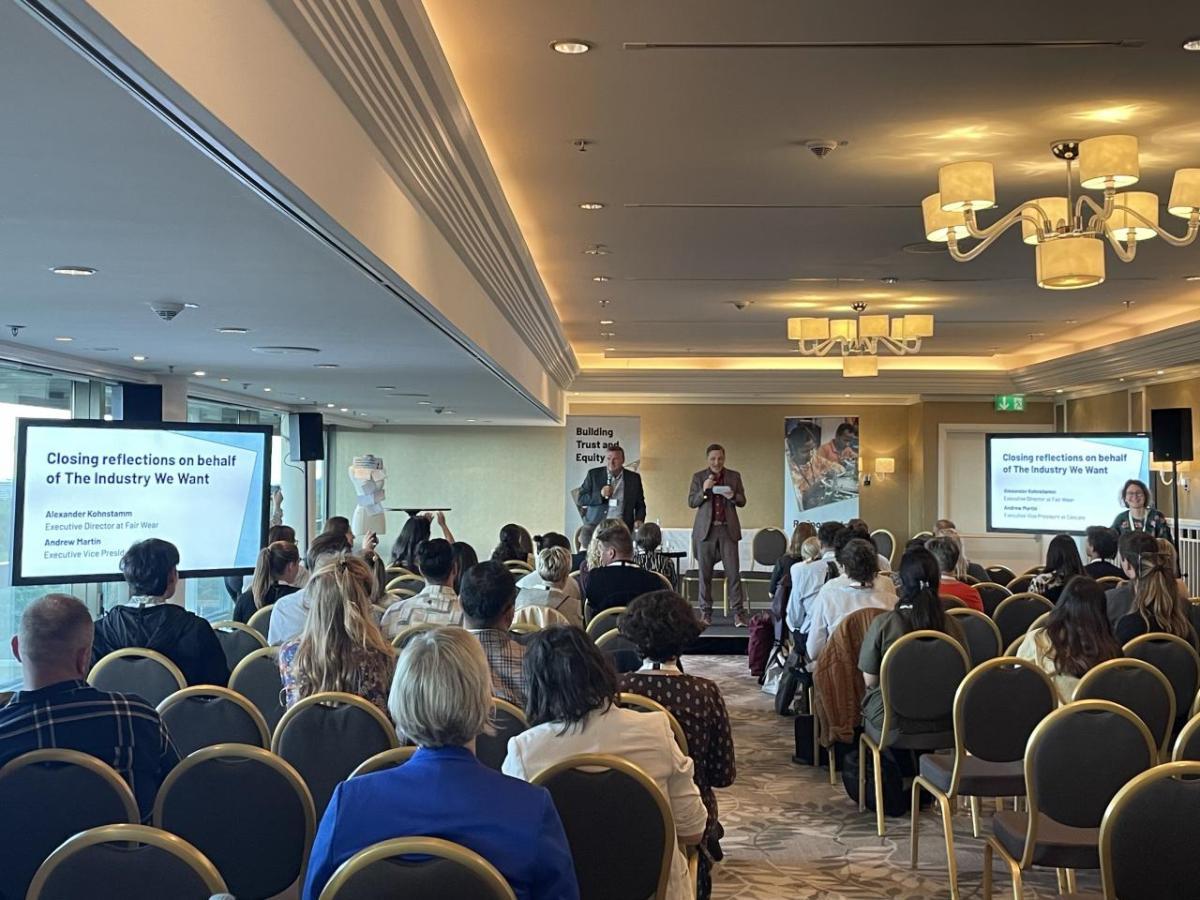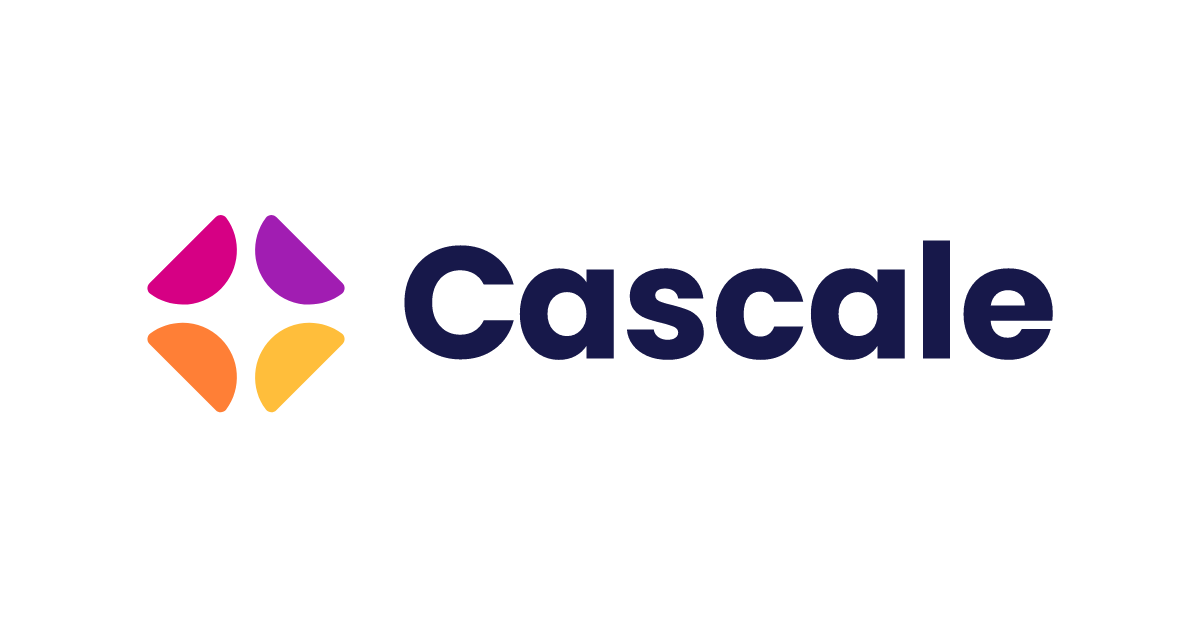Cascale Joins the Industry We Want and Initiative for Global Solidarity To Discuss Responsible Purchasing Practices

Cascale’s Andrew Martin, executive vice president, and Maravillas Rodriguez Zarco, senior director, Higg Index strategy & operations, joined critical stakeholders in Munich, Germany, at the “Building Trust and Equity: Responsible Purchasing as the New Norm” event, hosted by The Industry We Want and the Initiative for Global Solidarity, prior to Cascale’s Annual Meeting 2024.
The Industry We Want, an initiative convened by Fair Wear, Ethical Trading Initiative (ETI), and Cascale "envisages a garment and footwear industry that realizes its full potential to ensure dignity for workers in decent jobs, thriving businesses along the supply chain and a positive impact on the planet." The Initiative for Global Solidarity (IGS) promotes human rights and environmental due diligence in global supply chains by enabling buyers and manufacturers to live up to their joint responsibility; it is implemented by Deutsche Gesellschaft für Internationale Zusammenarbeit (GIZ) GmbH on behalf of the German Federal Ministry for Economic Cooperation and Development.
The exclusive event brought together over 100 key stakeholders for an inclusive conversation to foster a deeper understanding of the interconnected impact of purchasing practices for improvements in environmental and social issues related to working conditions. Key decision-makers and industry experts convened to discuss fostering equitable sourcing dialogues and embracing responsible purchasing practices to stimulate significant improvements in social and environmental standards. The meeting was held under Chatham House Rules.
After a hosted networking lunch and welcome by Thorsten Metz, head of programme at IGS, keynote by Claudia Geiser, senior policy officer at BMZ, and a scene-setting summary of the state of the industry by Gopinath Parakuni, director of strategy at Cividep India, the first panel convened. It included Rodriguez, alongside Dorothy Lovell, senior policy analyst in the Responsible Business Conduct Unit, OECD, Wilhelm Richard, head of unit at Federal Office of Economics and Export Control (BAFA), Abrar Sayem, director at Bangladesh Garment Manufacturers and Exporters Association(BGMEA) and spokesperson for the Sustainable Terms of Trade Initiative (STTI), and Alke Boessiger, deputy general secretary, Uni Global.
The panelists discussed how to embed responsible purchasing practices as a core principle for driving positive change, within the context of adaptation to new legislative demands like the German Supply Chain Act and the forthcoming Corporate Sustainability Due Diligence Directive (CS3D). With a focus on ensuring impactful Human Rights and Environmental Due Diligence (HREDD), the discussion centered on how to hold businesses accountable while aligning commercial practices with the new norms for responsible purchasing. Panelists explored how the industry can navigate regulatory changes while also preventing the burden of legal requirements being unfairly distributed along the supply chain. To move beyond mere compliance, the panelists detailed how industry tools and standards for assessing responsible purchasing practices can lead to more effective HREDD, ensuring that brands and manufacturing partners can drive real change across the supply chain.
In the context of this conversation, Rodriguez shared how Cascale had evolved the Higg Brand & Retail Module (Higg BRM) to avoid duplication and redundancies and better align with the common framework. She emphasized the importance of collective action to guide Cascale’s members towards responsible purchasing practices and that the Higg BRM helps identify related gaps in the supply chain, supporting companies in initiating conversations with manufacturers to build more robust and resilient supply chains.
Following a presentation on the CFRPP Accountability Framework by Lisa Süß, chair of the MSI Group on RPP, the second panel convened, which included Veronique Camerer, deputy director at the International Accord, Maria Venus, CSR sustainability environmental manager at Fenix Outdoor, Robert Hellwig, CSR manager and Advisor Buying Department at Ortovox, and Tandiwe Gross, head of access to remedy and due diligence for ACT. The panelists explored the practical application of responsible purchasing practices and their role in advancing sustainability efforts, including how they can unlock funding for HREDD efforts while promoting fair cost-sharing between brands and manufacturers to support environmental upgrades and improved labor conditions. Calling on insights from both manufacturers and brands, the discussion explored the real-world challenges and opportunities in implementing responsible purchasing practices.
The afternoon commenced with an exploration of The Responsible Contracting Project by Daniel Schönfelder, lead European legal advisor at Responsible Contracting Project, followed by an open Q&A with industry experts Süß and Schönfelder. Finally, Andrew Martin and Alexander Kohnstam, executive director at Fair Wear, shared closing reflections on The Industry We Want and how responsible purchasing practices have the power to build a future where sustainable production is not just possible but the norm, and where fair outcomes are achieved for everyone along the supply chain.

